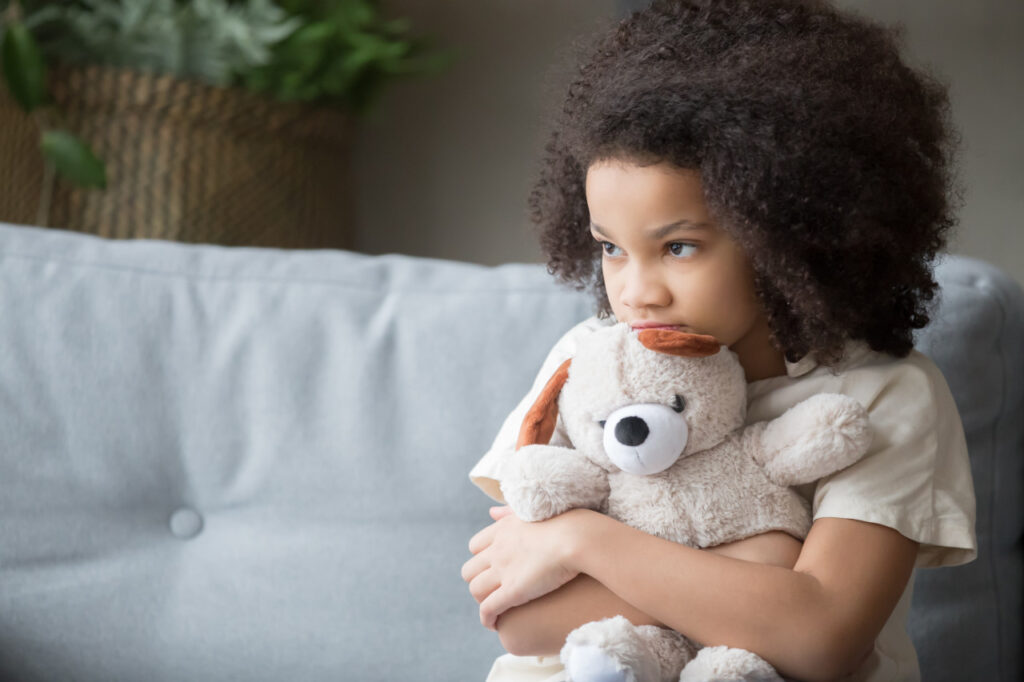Tough conversations about an unusual event like a fire can be challenging to broach with children. How much information do you share? Do you avoid certain topics all together? You don’t want to prime your child for fear, yet you might want them to be aware on some level of what is happening in their community. The south Charlotte area has recently had two large fires, the fire across from South Park Mall and the fire at Charlotte Preparatory School. For many, these events feel a little too close for comfort.
I can personally relate to dealing with a fire. In high school, my next-door neighbor’s house burned down on New Year’s Eve. The fire department did a great job of putting out the fire and keeping the neighborhood safe. Thankfully no one was home, nor were any of the neighbors’ homes impacted, but the experience of seeing a home on fire definitely stuck with me.
Being that I was in high school, I had the maturity to be able to process this event. For younger children, or individuals who have different triggers or emotional thresholds, processing something like this could be more difficult. Parents or caregivers can support their child in different ways.
Below are a few ideas that may help:
- Share just enough information. If a child witnesses a fire, or the aftermath of a fire, it can be helpful to only share brief, factual, age-appropriate information. Children need a way understand scary or confusing news and integrate it into their brains. For instance, you could share, “A building caught on fire the other day. Brave fire fighters were able to put it out and the area is safe.” Avoid conversations about any potential loss of life for younger children. For older children, you could give a bit more detail if needed. Encourage open-ended conversations with older children by asking them, “What have you heard about xyz?” and offering, “If you have any questions or want to talk about this, I’m here.” I would avoid forcing a conversation, rather leave the door open for them to come to you with any concerns they may have. If a fire happened in a community that has nothing to do with your family, or if your child is already dealing with a high degree of anxiety and unaware of the event, you may want to avoid the conversation all together.
- Validate feelings. Validating a child’s feelings is always important. This creates safety and connection. You could reflect, “Learning news about a fire can be scary. My job as a parent is to keep you safe.” Or, “I’m glad you told me this was bothering you. It makes sense to feel upset. Let’s take a deep breath to help calm ourselves.”
- Make a safety plan for your home. Local fires may prompt you to consider the safety of your own home. It is easy to get overly concerned and fearful, but instead I would advise the following:
- Check that your smoke and carbon monoxide detectors are working properly.
- Make sure exits are easily accessible.
- Check to make sure you have a working and accessible fire extinguisher.
- Practice an emergency exit plan with your family.
- Teach children stop, drop, and roll.
- Make sure to blow out candles and unplug space heaters.
- Put matches out of reach from children; etc.
Using visuals or social stories maybe helpful to communicate your message, especially for autistic children. Take a deep breath because while fires have been in the news, statistically there is, “less than a 1 in 10 chance you would experience a fire,” according to Locket Insurance, an UK based insurance company.
4. Take action to give back to helpers. Sometimes children and individuals can feel powerless after a fire. Taking action steps like the suggestions above, or doing something nice for the helpers in your community, are ways to regain some sense of safety and control. Maybe your family could bring a meal to local fire fighters or donate money to the Red Cross. If there is a specific family, school, or organization impacted, you could reach out to a leader directly to see what their needs are.
These are just some of the ways you can help comfort a child after they learn about a fire. If your child is showing greater distress, anxiety, or trauma symptoms like having nightmares, having increased fears, having difficulty separating from parents, avoiding going places, etc. post fire please reach out to a counselor, so they can walk alongside your family.
Other Resources:

